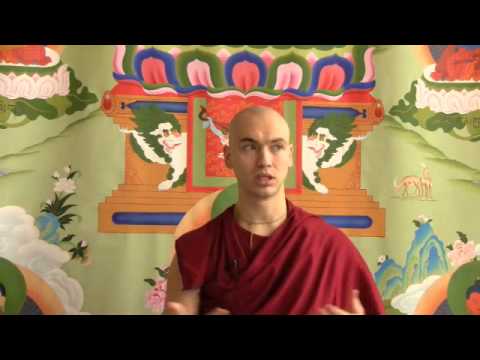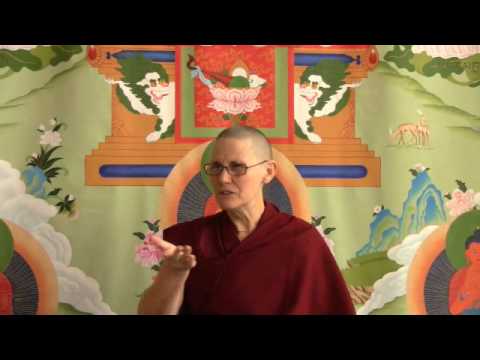Why Buddha is a reliable refuge
Part of a series of Bodhisattva's Breakfast Corner talks given during the Green Tara Winter Retreat from December 2009 to March 2010.
- The qualities of buddhas that make them suitable objects of refuge
- The benefits of doing the refuge practice
Green Tara Retreat 044: Why Buddha is a reliable refuge (download)
The qualities of the Buddhas
I have been doing the refuge ngondro along with the Green Tara practice during this retreat and have found it [to be] very rich and very interesting. The lamrim teaches four reasons that Buddhas are suitable objects of refuge, and this is one of the points that I’ve been meditating on. I’ll talk about those a little bit.
The first point is that the Buddha has attained the fearless state of complete self-control. When you think about that, just imagine, to be rid of all the afflictions—ignorance, anger, attachment, jealousy, pride and so on—just imagine that. I think that the mind would be so freed up. You would have so much physical and mental energy. Which then I think explains the power of the buddhas. Geshe Sopa writes that, “The result of eradicating these afflictions is a state of fearlessness because one is not under the power of uncontrolled causes and conditions.” That certainly makes sense that there would be no resistance to anything. You would not be stuck in any of your own stuff—which would be just lovely.
The second point, the second reason is that they have skillful and effective means to free others from all fear. If you reached enlightenment, you would then have energy and power to be able to turn towards others and help them. This makes perfect sense to me.
The third point is that they have equal compassion for all, regardless of whether we have faith in them or not. With this one, what I have thought about is: “Yes, this is very possible.” Why? When I think about our teachers and the depth of the great compassion they have cultivated, this is very possible. It always helps me to try to bring examples that are close to me, of living beings, because buddhahood seems so remote in many ways. If we think of our teachers, or the great masters of the past, and the skills that they developed, then I think it’s a little more accessible.
The fourth reason is they fulfill the aims of all beings, whether or not those beings have helped them. With this one, again, I think of teachers and how they relate in such an unbiased way. They always respond and relate to people in such a lovely, free, unbiased way. Again, that makes it more accessible for my mind.
Benefits to doing the refuge practice
There are a lot of benefits to the refuge practice. Certainly to deepen one’s refuge, obviously, that’s one thing. I think just with the familiarity what it seems like so far, of reciting the refuge over and over again, that it is becoming more real. I have more experience with it; it is not so intellectual now. The other points or benefits to this practice is by purifying past negative actions and creating positive potential, which is what happens when we do this practice, that then helps us progress.
I was thinking about why that would help us progress on the path. What I came up with was this. If we can purify our past actions and be mindful. If we guard our body, speech, and mind as best we can, and not create more negativities, (and when we do to purify them immediately). If we place our mind on virtuous objects and on virtuous actions. If we practice doing that over and over again, then we are getting closer to a Buddha’s activities. Then it seems like it would naturally follow that realizations would come. It has been a very rich practice and I invite people to investigate it. Venerable Chodron gave a series of teachings on the ngondro practice back in September. I think the first one was September 3 of this last year. It is a lovely practice.
Venerable Thubten Jigme
Venerable Jigme met Venerable Chodron in 1998 at Cloud Mountain Retreat Center. She took refuge in 1999 and attended Dharma Friendship Foundation in Seattle. She moved to the Abbey in 2008 and took sramanerika and sikasamana vows with Venerable Chodron as her preceptor in March 2009. She received bhikshuni ordination at Fo Guang Shan in Taiwan in 2011. Before moving to Sravasti Abbey, Venerable Jigme (then Dianne Pratt) worked as a Psychiatric Nurse Practitioner in private practice in Seattle. In her career as a nurse, she worked in hospitals, clinics and educational settings. At the Abbey, Ven. Jigme is the Guest Master, manages the prison outreach program and oversees the video program.


